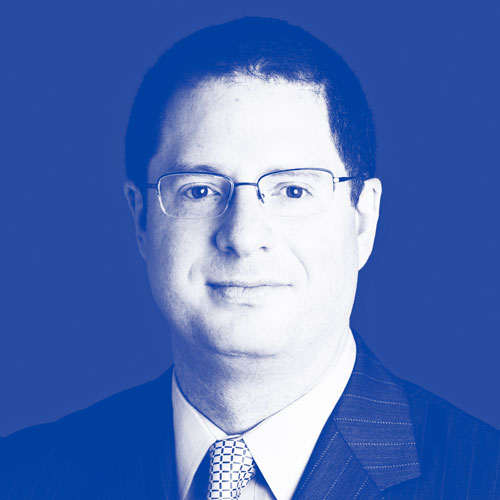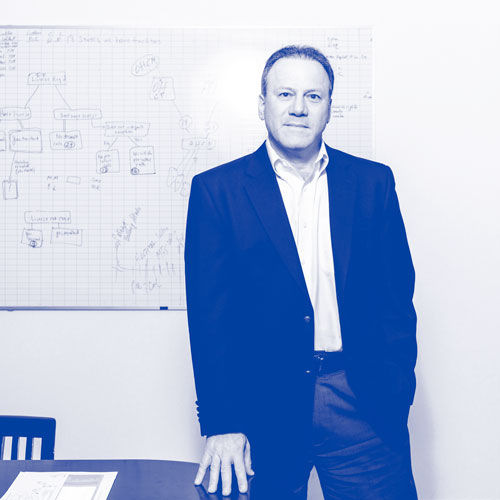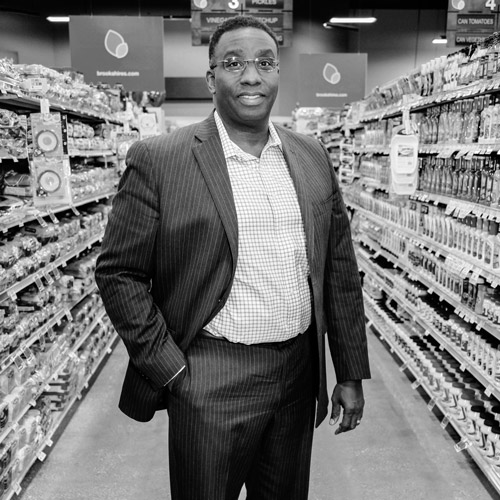Brian Brooks grew up in the small steel-mill town of Pueblo, Colorado. His father died when he was fourteen years old, and he had to find a way to help support his family. He needed a job, and Brooks found one waiting tables for $2.01 an hour (plus tips) at the only white-tablecloth restaurant in town. The restaurant, La Renaissance, and its owner Jim Fredregill, provided Brooks with a customer-service base and business values that he would carry with him throughout his career.

Fredregill was a legend in that town, according to Brooks. One busy Friday night when Brooks was seventeen, there wasn’t a single empty seat in the house when a couple came in with a reservation. This was before the Internet and before booking services like Open Table—all reservations were written in a book, but La Renaissance didn’t have the couple’s reservation listed.
Instead of asking them to leave, Fredregill found a garbage can from the back of the house, and cleaned it. He brought out a round piece of wood. He put the round piece of wood on the garbage can, covered it with a white table cloth, and he tied some twine around
that held the table cloth to the garbage can. He set it in the most elegant possible way, seated the couple, and they had a nice evening.
That memory sticks with Brooks to this day. He doesn’t know of any restaurant that would do that today. “I think if you showed up in some fancy restaurant in New York, and they lost your reservation, I think you’d be out on the street,” Brooks says. “That’s not what happened at our restaurant.”
Though Fredregill died two years ago, he taught Brooks what it meant to respect people who have different backgrounds and aspirations. He taught Brooks what it meant to be part of a team. Brooks brings that experience with him more than three decades later as the executive vice president, general counsel, and corporate secretary at the US Federal National Mortgage Association known as Fannie Mae.
Brooks graduated from the University of Chicago Law School in 1994, and he moved to Washington, DC, to work at the global law firm O’Melveny & Meyers. He handled various areas of the practice, including banking.
After three years, Brooks decided to do something unconventional—he became a judicial clerk for Danny J. Boggs, which is something most graduates do right out of law school. After his clerkship, Brooks returned to O’Melveny & Meyers, made partner, and eventually ended up as the managing partner of the DC office and the head of the first financial services practice.
Brooks had been at O’Melveny & Meyers about seventeen years when the financial crisis hit the United States. “The financial crisis had two types of clients you might have,” he says. “It had clients who were going bankrupt and then it had clients who were finding opportunity in the crisis.”
The ones who were looking to make money off of the crisis were buying distressed assets, failed banks, and attempting to utilize turnaround strategies. It was the time of the robo-signing scandal. Brooks had a number of clients who were in the middle of the worst financial crisis of anybody’s lifetime. People were getting fired, sued, and prosecuted. They need a strategy to move forward, and Brooks was the lawyer they called to get the train back on the tracks.
Brooks and his team developed a legal mechanism to restart foreclosures based on a reverification process. The robo-signing scandal used false affidavits in thousands of foreclosure cases, and Brooks saw the catch-22. “You can’t throw people out of their houses on faulty documentation, but we also can’t shut down the credit process, which would happen if we didn’t have a normal foreclosure and loss mitigation process,” Brooks says.
“Trusting your gut and taking risks can be an important and satisfying part of your career. . . . I took a big risk, and it changed who I am.”
His team found a way to reverify the affidavits, which allowed them to find a way to start moving forward. Slowly but surely, Brook’s clients got through it and survived the crisis.
O’Melveny & Meyers clients ended up buying Indymac Bank out of the US Federal Deposit Insurance Corporation (FDIC) receivership. At the time, it was the second-largest bank failure in US history. Indymac eventually became OneWest Bank and moved to California, and it gradually shifted more toward broader mortgage servicing.
All of these banks had big needs, according to Brooks, who adds that OneWest invited him to join the company as chairman and play a leadership role in the mortgage side of the business. He moved across the United States with his wife and four school-age children to make the career change. He gave up a thriving and promising law practice for the chance to make it in the banking industry.
It was a high-risk thing to do, but it was pivotal for him in many ways. “It made me realize that trusting your gut and taking risks can be an important and satisfying part of your career,” Brooks says. “There was safety where I was. I was practicing law with my friends and mentors. I could have done that until I retired. I took a big risk, and it changed who I am.”
In the late fall of 2014, Brooks made another career move to his current position as the executive vice president, general counsel, and corporate secretary at Fannie Mae. A former client at Fannie Mae, who had been Brooks’s client at O’Melveny & Meyers, was looking for a new general counsel.
Since Fannie Mae had been a former client of his, Brooks applied and later got the job. “This company is a standard-setter,” says Brooks, regarding Fannie Mae. “If we get it right, we can change lives here. If we get it wrong, bad things can happen, so I wake up every morning with a real sense that what I do today really, really matters.”
Yet, Brooks says his career wouldn’t have been possible without that first job at La Renaissance that paved the way for his role at Fannie Mae—a position he uses to make a difference in people’s lives. “I’ve had a lot of jobs that I’ve really loved and enjoyed, but I’ve never had one where I have such an enormous amount of responsibility as I have here,” Brooks says. “If what you’re doing matters, that’s going to get you out of bed in the morning and get you to do your best every day.”

